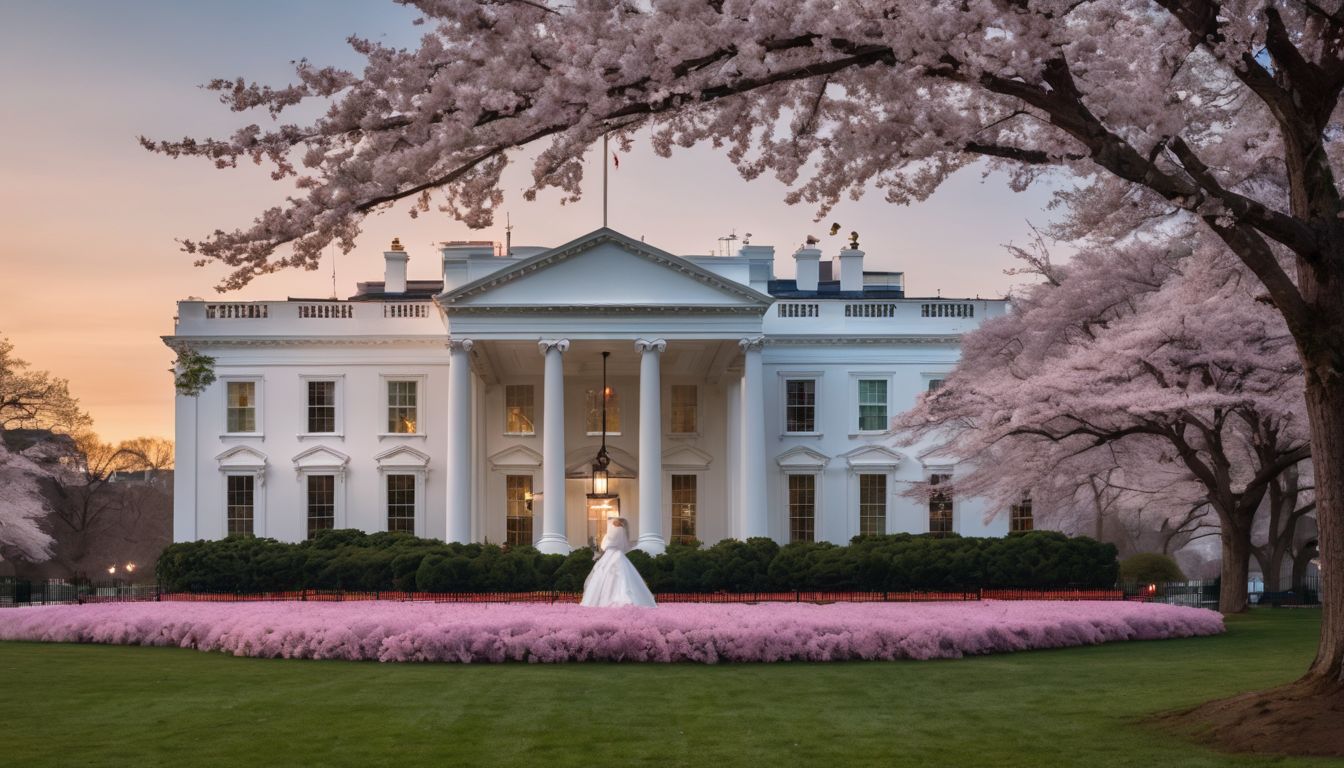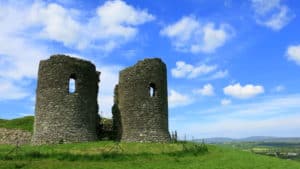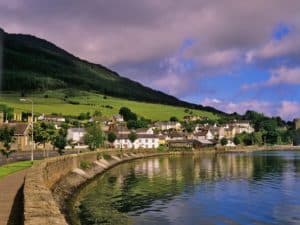John F. Kennedy: The Legacy of the United States’ 35th President

Updated On: November 24, 2023 by Miranne Khaled
Grasping the life and legacy of John F. Kennedy, the 35th President of the United States, can seem like quite a pickle, can’t it? We’ve all found ourselves knee-deep in hefty tomes chock-a-block with political speak, trying to comprehend his significant mark on history and culture.
Did you know that John F. Kennedy still holds the record for being the youngest man ever elected president? In this blog post, we aim to untangle JFK’s early years, his captivating political career, presidency and lasting impact in consumable portions suited for history fanatics and those simply wanting to satisfy their curiosity.
So ready for your teacups, folks! Journey into a world where politics dances intriguingly with personal charisma awaits us.
Early Life and Political Career
John F. Kennedy, commonly known as JFK, was born on May 29, 1917, into one of America’s most prominent families, which would profoundly shape his early life and future ambitions. His early life was filled with achievements, from his education at prestigious institutions like Harvard University to serving in the U.S. Naval Reserve and receiving military awards for his bravery during World War II.
The early life of John F. Kennedy was a complex tapestry of privilege, familial expectations, personal challenges, and a burgeoning passion for public service. These experiences laid the foundation for his eventual rise to one of the highest offices in the United States, painting a portrait of a leader shaped by privilege and adversity.
From an early age, he faced the blessings and burdens of his family’s legacy. His father, Joseph P. Kennedy Sr., was a successful businessman and later served as the United States Ambassador to the United Kingdom. His mother, Rose Fitzgerald Kennedy, was a socialite and the daughter of a prominent Boston political figure. This backdrop of wealth and public service set the stage for Kennedy’s early life, instilling a sense of duty and a drive for achievement.
Despite the affluence, JFK’s early years were not without challenges. He struggled with various health issues, including a prolonged bout of scarlet fever, which was a severe illness at the time. These health struggles would follow him throughout his life, yet they also contributed to his resilience and determination.
Education
Kennedy’s education played a pivotal role in his formative years. He attended elite schools including the Choate School in Connecticut and later, Harvard University. At Harvard, his intellectual curiosity flourished, and he developed a particular interest in political philosophy and international relations, themes that would prominently feature in his later political career got his degree in 1940.
His thesis was well-received for its insight and depth of analysis. With encouragement from his father and others, Kennedy revised and expanded his thesis into a book, “Why England Slept,” which was published in 1940. The book gained significant attention and was a bestseller, marking Kennedy’s first major foray into the public eye and setting the stage for his future political career.
The work not only highlighted his intellectual capabilities but also showcased his ability to engage with complex international issues, a skill he would later bring to his presidency. Later, he also studied at Stanford for business but did not finish it. The love for learning stuck with him even when he was president. He always made time to read books during breaks from work.Kennedy’s education played a pivotal role in his formative years.
U.S. Naval Reserve
Kennedy’s naval service was a defining period in his life. It not only demonstrated his physical courage and leadership skills but also deepened his understanding of international conflict and the sacrifices of war. These experiences greatly influenced his future political positions, especially his military and foreign policy views.
His war hero status also contributed significantly to his political appeal when he later pursued a political career. Kennedy enlisted in the Naval Reserve in 1941 as the United States was preparing to enter World War II. Initially, he served in the Office of Naval Intelligence in Washington, D.C. However, his desire for active duty led him to request a transfer to combat operations.
Despite his chronic lower back problems, he was eventually accepted for PT (Patrol Torpedo) boat training. His most notable and heroic incident occurred in August of that year. While on patrol, PT-109 was struck by a Japanese destroyer and cut in half, killing two crew members and stranding the others in the Pacific Ocean.
Kennedy showcased remarkable leadership and bravery in the aftermath of the collision. Despite his own injuries, he led the survivors in a gruelling swim to a nearby island, towing an injured crew member through the water with a life jacket strap clenched in his teeth.
For several days, Kennedy and his crew waited for rescue, surviving on limited resources and Kennedy’s resourcefulness in evading enemy patrols. During this harrowing experience, his actions earned him the Navy and Marine Corps Medal, the highest non-combat decoration awarded for heroism by the U.S. Navy, and a Purple Heart for his injuries.
Military Awards
Kennedy was undoubtedly one of the best US presidents in history. His military service and the awards he received played a significant role in shaping his character and later political career. His experience in the Navy, particularly the PT-109 episode, became a notable part of his public image and contributed to his reputation as a war hero, which he carried into his political life.
During his service in the United States Navy during World War II, he received several military awards and decorations for his bravery and leadership. These awards are a testament to his heroism and commitment during a critical period in his life. The most notable of these awards include:
- Navy and Marine Corps Medal: This is the highest non-combat decoration awarded for heroism by the U.S. Navy. Kennedy received this medal for his extraordinary courage and leadership following the sinking of his patrol torpedo boat, PT-109. Despite being injured, he played a crucial role in ensuring the survival and eventual rescue of his crew.
- Purple Heart: Kennedy was awarded the Purple Heart for the injuries he sustained during the PT-109 incident. The Purple Heart is awarded to members of the armed forces who are wounded by an instrument of war in the hands of the enemy.
- American Defense Service Medal: This medal was awarded for military service during the initial period of American involvement in World War II, specifically for those who served before the United States formally entered the war.
- American Campaign Medal: This decoration was given to those who served in the American Theater during World War II.
- Asiatic-Pacific Campaign Medal: Awarded for service in the Asiatic-Pacific Theater during World War II, this medal recognised Kennedy’s participation in military operations in the Pacific region.
- World War II Victory Medal: This medal was awarded to all military personnel who served in the armed forces during World War II.
Journalism
Before embarking on his illustrious political career, John F. Kennedy briefly ventured into the field of journalism, an experience that would later enrich his understanding of global affairs and communication. Though Kennedy’s career in journalism was brief, it was significant in shaping his worldview and communication skills. This experience contributed to his ability to engage with both national and international issues as a politician and to communicate effectively with the American public and global leaders.
Between 1939 and 1940, Kennedy worked as a correspondent for the Hearst newspapers, a role that had him reporting on a range of significant events, including the early stages of World War II. During his stint in journalism, Kennedy honed his skills in researching, analysing, and articulating complex events. He was not confined to local stories but travelled widely to gather news, providing him with a broader perspective on international affairs.
U.S. House of Representatives
After serving in the U.S. Naval Reserve and earning military awards, Kennedy ventured into politics and was elected to the U.S. House of Representatives – a stepping stone towards his future presidency.
Read on to discover more about his remarkable journey.
Presidency and Legacy
In the 1960 presidential election, John F. Kennedy ran against Richard Nixon. It was a close and highly debated race. Kennedy’s youth and charisma appealled to many voters, while Nixon emphasized his experience and expertise in foreign policy.
The first-ever televised debates played a significant role in shaping public opinion, as Kennedy appeared confident and composed on screen. Ultimately, Kennedy won by a narrow margin of popular votes, becoming the youngest president ever elected at 43.
This election marked the beginning of an era that would bring about significant changes in American society and politics under President Kennedy’s leadership. During his presidency, John F. Kennedy made significant contributions in foreign and domestic policy, appointed key judges to the Supreme Court, and faced a tragic assassination that shook the nation.
His legacy spans from his handling of the Cold War and Civil Rights Movement to advancements in space exploration. Discover more about this influential president’s time in office and how it continues to shape America today.
Assassination and Aftermath
The assassination of John F. Kennedy took place on November 22, 1963, and it was a tragic event that shook the nation. While travelling in a motorcade through downtown Dallas, Texas, Kennedy was shot and killed. The aftermath of his assassination had a profound impact on American society. It led to widespread grief and mourning across the country.
Lyndon B. Johnson became the new president just hours after Kennedy’s death. The loss of President Kennedy left a void in American politics and society, but his legacy continues to inspire future generations with his vision for progress and active citizenship.
Conspiracy Theories Associated with John F. Kennedy’s Death
The assassination of President John F. Kennedy has been a fertile ground for numerous conspiracy theories, many of which have persisted for decades. These theories often question the claims of the Warren Commission, which professed in 1964 that Lee Harvey Oswald acted alone in the assassination. The most prominent conspiracy theories include:
- Multiple Shooters: This theory suggests that Oswald was not the only gunman and that shots were fired from various locations, such as the grassy knoll in Dealey Plaza. This is based on varying interpretations of the audio recordings, eyewitness accounts, and the Zapruder film of the assassination.
- Mafia Involvement: Some theories propose that the Mafia was involved in the assassination, possibly as a response to the Kennedy administration’s increased efforts against organized crime. This theory often points to Jack Ruby’s connections to the underworld and his subsequent murder of Oswald as evidence.
- CIA Involvement: These theories suggest that elements within the Central Intelligence Agency had a motive to kill Kennedy, possibly due to disagreements over foreign policy, including the Bay of Pigs Invasion and the handling of the Cuban Missile Crisis.
- Cuban or Soviet Union Involvement: Given the tense international climate, some theories claim that Fidel Castro or the Soviet Union had a motive to assassinate Kennedy, possibly as retribution for the Bay of Pigs Invasion and/or the Cuban Missile Crisis.
- Lyndon B. Johnson’s Involvement: A more controversial theory posits that Vice President Johnson, who succeeded Kennedy, was involved in the assassination to gain the presidency. This theory often cites Johnson’s political ambitions and alleged animosity with Kennedy.
- FBI Cover-Up: Some believe the FBI, led by J. Edgar Hoover, was involved in a cover-up of the true circumstances of the assassination, possibly to hide the agency’s failings or complicity.
- Military-Industrial Complex: This theory suggests that Kennedy was assassinated due to his supposed plans to reduce military involvement in Vietnam, thus conflicting with the interests of the military-industrial complex.
- Secret Service Involvement: A less common theory accuses elements within the Secret Service of being involved in or facilitating the assassination based on alleged lapses in standard protective measures.
John F. Kennedy, the 35th President of the United States, left behind a lasting legacy. Despite his short time in office, he made significant contributions to American politics and society. From his inspiring leadership to handling foreign crises, Kennedy’s impact is still felt today. His tragic assassination may have cut his presidency short, but his ideals and vision continue to shape the nation’s history.






